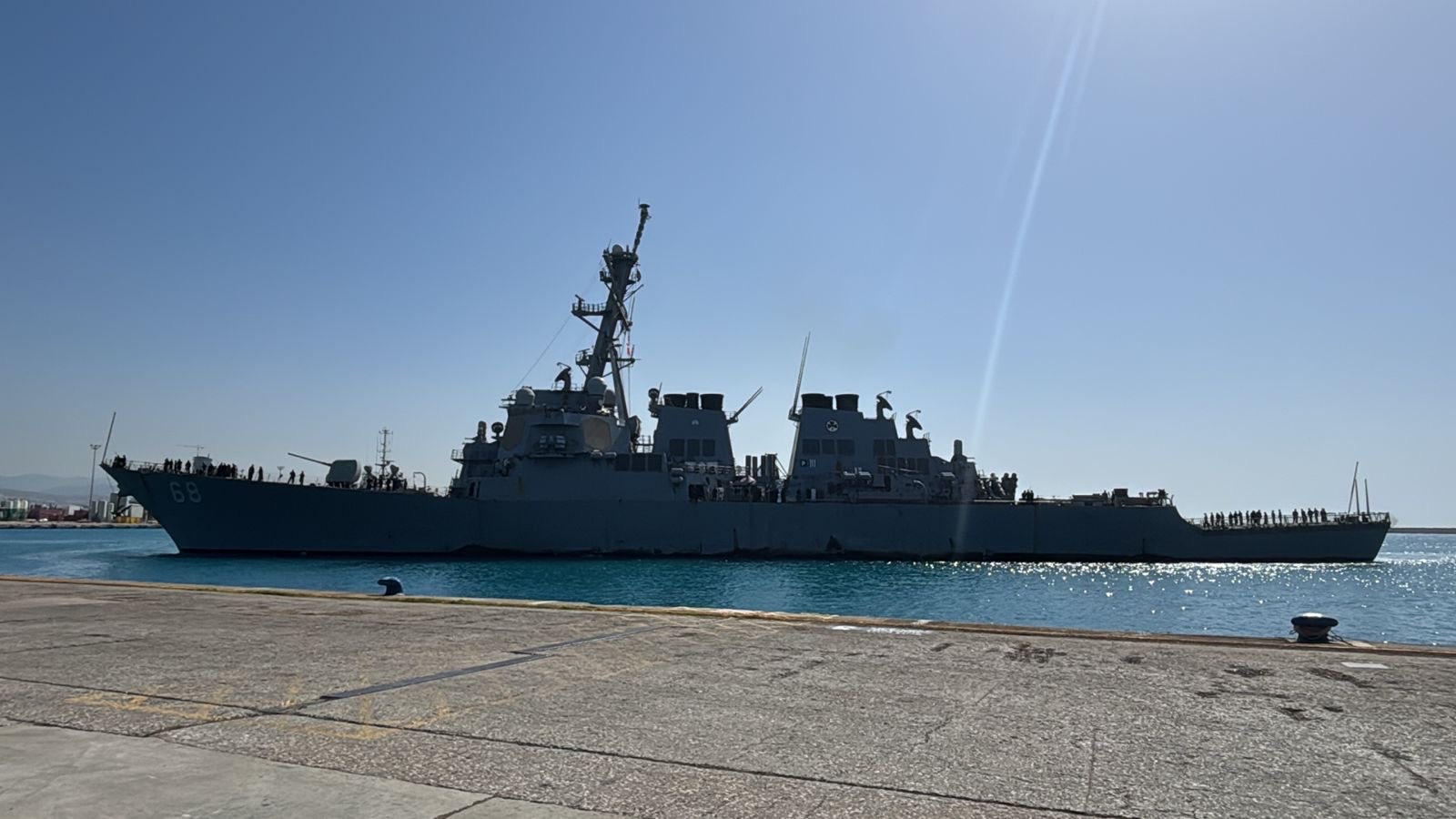The United States navy’s guided missile destroyer the USS The Sullivans arrived in Limassol on Wednesday, marking its first return to Cyprus since February.
According to the American embassy in Nicosia, the ship is in Cyprus for a “well-deserved liberty port call” – the US navy’s term for a stop-off to give sailors free time.
US charge d’affaires in Nicosia Dan Mangis, who is leading the country’s diplomatic mission on the island in the absence of ambassador Julie Davis Fisher, who has been deployed to Ukraine, urged the ship’s crew to “enjoy Cyprus’ beautiful shores, rich history, and warm hospitality”.
The ship was named in honour of the five Sullivan brothers, George, Francis, Joseph, Madison and Albert, who were all killed in action when their ship was sunk in the Pacific Ocean during the Second World War.
The loss of all five brothers constituted the greatest military loss by any single family during the war.
The ship’s arrival is one of a growing number of US navy ships docking in Cyprus, with the USS Oscar Austin’s arrival in February the most recent such arrival prior to Wednesday.
In addition to deepening naval ties, Cyprus was earlier this year authorised to buy military hardware directly from the United States government after joining three programmes run by the country’s department of defence.
The country was incorporated into the US defence security cooperation agency’s foreign military sales (FMS) programme, its excess defence articles (EDA) programme, and will be allocated resources under the US’ ‘Title 10’ security assistance provisions.
It is the inclusion into the FMS programme which will allow the government to purchase military hardware directly from the US government, with the country previously having only been able to buy US military hardware from private companies.
Being able to circumvent private companies will allow the government to buy weapons and other hardware at cheaper prices than before, given that the US government typically acquires its apparatus in bulk, and is thus able to sell it on for cheaper prices than what private companies would offer to a military of the National Guard’s size.






Click here to change your cookie preferences